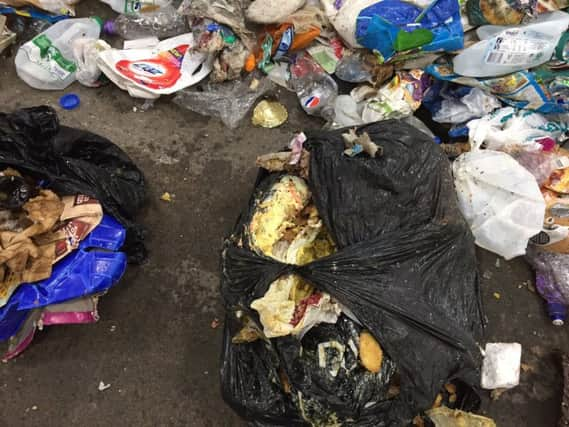Don't '˜waste' chance to help recycling drive


As most local households will have seen packaging and wrapping piling up over the festive season, Derry people are being reminded of the range of items that can be recycled- and those that can’t.
Over the past month Derry City & Strabane District Council have been stepping up efforts to deal with the issue of contamination in the recycling bins. Teams have been out checking bins and tagging any bins that are contaminated.Anyone who has had their bin tagged needs to check it and remove the contamination and leave it out again for collection.
Advertisement
Hide AdAdvertisement
Hide AdPaper items which can be placed in the blue bin for recycling include newspapers, magazines, brochures, catalgoues, phone books, Christmas cards and greeting cards, envelopes, brown paper, flyers, junk mail, emvelopes, hard back and paperback books and office paper.


All cardboard boxes and card packaging including cereal boxes, kitchen and toilet roll ends can also be recycled, along with cleaned out food and drink cans and tins.
Empty hair spray, air freshners and body spray cans can all go into the blue bin.
Rinsed out plastic milk, juice and soft drink bottles, washing up liquid, shampoo, medicine, bleach, detergent, household cleaner, ketchup and sauces bottles can be recycled along with bottle tops, plastic jar lids, as well as drink, soup and milk cartons can be recycled.
Advertisement
Hide AdAdvertisement
Hide AdOther recyclable goods for the blue bin include washed out platic butter, magrarine tubs, yoghurt pots, food trays, takeaway containers, disposal cups, plastic egg cartons, and glass wine, beer, spirit, jam, aftershave, medicine, perfume bottles, whole or broken.


The blue bins can also be used to recycle clothes and shoes, although the Council advised preference should be given to donating to charity shops and clothing banks.
Small waste electrical items can be recycled, including electrical tools, irms, toasters, kettles, hair dryers, radios, Christmas tree lights (but no glass electrical goods).
If any of the following items are placed in blue bins however they are deemed contamination: General household waste, black bags and plastic carrier bags, food waste, nappies, tissues, polystyrene, batteries (AA, AAA, Car), windows from envelopes, duvets and quilts and large electrical items i.e. tvs, computer monitors, microwaves.
Advertisement
Hide AdAdvertisement
Hide AdLetters reminding householders of efforts to tackle the issue of contamination were issued several weeks ago.
Conor Canning, Head of Environment with Derry and Strabane Council said people who are putting non-recyclable items in their blue bins is resulting in entire loads of recyclable material being rejected, costing the Council thousands of pounds that could be better spent elsewhere.
He said: “It is an ongoing problem and we are seeing nappies, plastic bags, food waste and general rubbish, which are contaminating the entire contents, being disposed of in the blue bins. The onus is on the public to take responsibility for their waste and to use the bins that are provided correctly. Our teams will not be collecting bins containing contaminated items,” he said.
Conor Canning said that there are some areas in the north west are doing really well, with figures for April to June 2017 showing a recycling and composting rate of 43.2%.
Advertisement
Hide AdAdvertisement
Hide Ad“Unfortunately there are a number of areas that could be doing better and we are dealing with the issue proactively,” he said. “We want to remind people that with their co-operation, and by making a few simple changes to how they dispose of their waste, Council can significantly reduce the amount of waste going to landfill. This in turn helps to keep our rates down. Any savings can also be invested in the provision of key services throughout the city and district.”